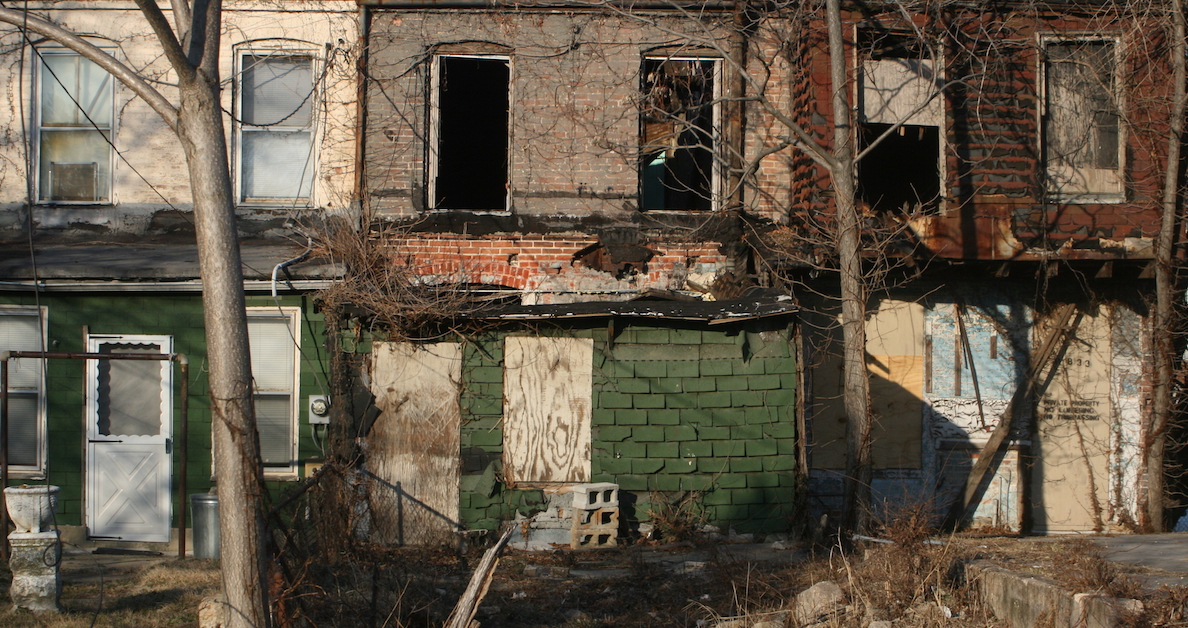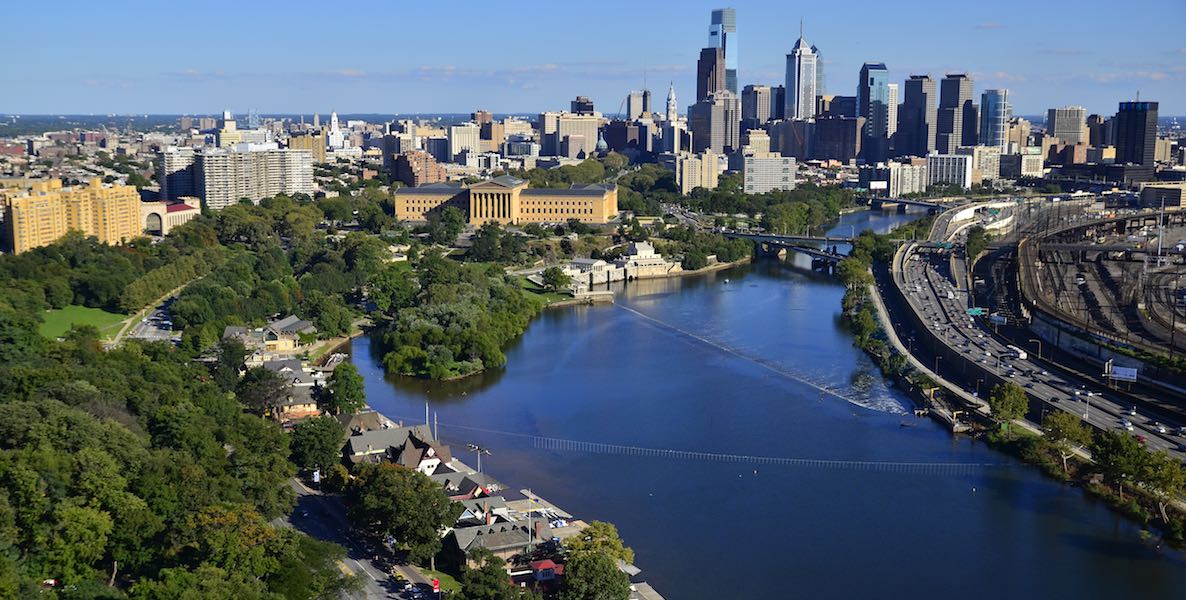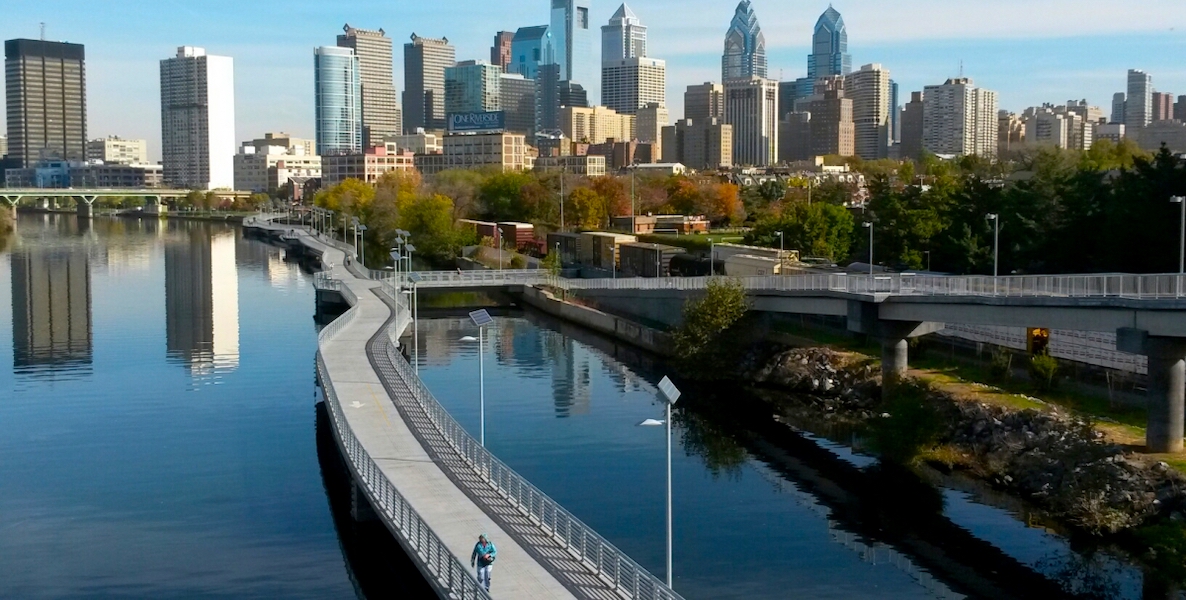At last week’s Democratic presidential primary debate, when answering a question about climate change, candidate Andrew Yang answered, in part, “This is going to be a tough truth, but we are too late. We are 10 years too late. We need to do everything we can to start moving the climate in the right direction, but we also need to start moving our people to higher ground.”

Prefer the audio version of this story? Listen to this article in CitizenCast below:

Yang is an unusual candidate and this was an unusual answer, at least compared to the other candidates. And maybe just because people don’t like unusual things, his answer has been largely ridiculed. Max Read in New York magazine went so far as to say that Yang’s answer “fits neatly into a dark, we’re-ten-years-too-late dystopian worldview that’s become fashionable in some of the internet’s less supervised spaces, as Trump-era channers, trolls, and memers, facing down widening inequality on a rapidly warming planet, turn to new and forgotten strains of nihilism, egoism, and ‘post-left’ politics.”
Certainly Yang’s answer was in some respects stupid. It was vague—we’re too late for what?—and could thus be read as nihilism. And he attempted to use his prescription of moving to higher ground to return to his theme of a universal basic income, which made no sense. But he was also correct, and the idea of moving to higher ground is absolutely mainstream among people who are hardly “doomers” doing whatever gross things they do on 4chan, as Read suggested, but rather people in such fields as insurance and the building industry, and decidedly not-radical websites like Zillow.com.
Philly’s Jim Kenney was one of the mayors to sign on to the Paris Agreement, and since then his administration has moved even further by formulating an initial roadmap by which the city might achieve a completely carbon-free electricity grid.
Take, for instance, the New York Building Congress (NYBC), a long-standing trade association for New York City’s building industry. Among other things, the NYBC’s resiliency report proposes that the city establish “prevention zones,” typically low-lying coastal areas, where new development should be discouraged; and “promotion zones,” typically more inland areas less susceptible to the threats from storms and sea level rise, where development should be encouraged. To compensate property owners in prevention zones, the NYBC suggests further that they be given “transferable development rights”—essentially credits they can sell to developers in promotion zones, allowing them to build beyond what would otherwise be allowed.
![]()
In other words, the NYBC acknowledges that New Yorkers will have to move to higher ground—and like Yang, proposes that they be paid to do so. Given the impact that Hurricane Sandy had on their city, it seems somewhat difficult for New Yorkers to ignore the threat of rising seas, but all cities near coasts face similar threats.
This was a point that I and 14 other Drexel faculty and staff attempted to point out in a report we wrote where we each sketched out what Philadelphia was likely to look like in 2100. Reasonable scenarios, suggested by the likes of the National Oceanic and Atmospheric Administration, are that many of the lower-lying areas of the city, such as the Navy Yard, will in the future no longer be habitable, at least not without major infrastructure investments.
And it’s not just sea level rise, of course. Philadelphia will be much hotter, energy will be more expensive, and there will be greater risks of things such as asthma and infectious diseases. And then of course there will be the problem of absorbing the refugees coming from the Southern United States—who, perhaps, we could keep out by building a wall.
![]()
These are optimistic scenarios based on ambitious but realistic goals for decreasing global greenhouse gas (GHG) emissions, and they fit entirely with Yang’s claim that we will have to move to higher ground—which raises the question of why his comments have been perceived as so fantastically nihilistic.
Perhaps it is that the dramatic changes we (and more so our children and grandchildren) will face as a result of climate change are simply too much to grasp and too hard to accept; they bring us face-to-face with the reality that the civilization that has shaped our dreams and expectations is also a threat to our existence, and it is simply too much for our animal brains to process. Yet at the same time our civilization has been built on institutions—rule systems intended to harness our collective capacities in positive directions that we could not achieve by ourselves. Institutions are, in other words, superorganisms that make us capable of grappling with and finding solutions for such existential threats as those posed by climate change.
I think it is a worthwhile exercise to think about how our city could be truly and completely mobilized in the fight against climate change, and how that might increasingly empower a sense of global urban citizenship.
And by some odd process of institutional evolution that I frankly do not understand, cities have emerged as one of the primary institutions that have enabled us to confront and grapple with the challenges posed by climate change. For instance, in 2001 the U.S. under the George W. Bush administration withdrew from the Kyoto Protocol (the international treaty through which countries committed to lowering their greenhouse gas emissions); and in 2005, when the Protocol commitments went into effect, the U.S. again chose not to participate.
![]()
Yet also in 2005, at the annual meeting of the U.S. Conference of Mayors, 141 cities committed to the Protocol—and hundreds more later also made GHG reduction commitments through the Mayors’ Climate Protection Agreement. And very quickly after the Trump administration announced its plan to withdraw from the Paris Climate Agreement, in 2017, 407 mayors committed to upholding the agreement. Philly’s Jim Kenney was one of the mayors to sign on to the Paris Agreement, and since then his administration has moved even further by formulating an initial roadmap by which the city might achieve a completely carbon-free electricity grid.
![]()
Of course, cities to a certain extent will achieve their GHG reduction goals simply by virtue of the fact that they have become the centers for service industries that don’t create much in the way of pollution in the first place. But we should not underestimate the commitment; it is still remarkable that cities have taken the lead in addressing climate change, most notably because city GHG reduction targets are policy goals that ultimately are probably of more benefit to people living outside rather inside those cities. There is possibly no better example than GHG reduction goals of cities serving as global citizens.
I did not write this with the intention of proposing yet more policy recommendations or goals, but rather to simply point out the extent of the challenges we are faced with as a result of climate change, the fact that we as Philadelphia residents are part of a network of cities that have taken on a remarkable role in global citizenship, the pride that gives me, and the hope that we continue to do so.
I think it is a worthwhile exercise to think about how our city could be truly and completely mobilized in the fight against climate change, and how that might increasingly empower a sense of global urban citizenship.
Photo by Jonathan Bari






